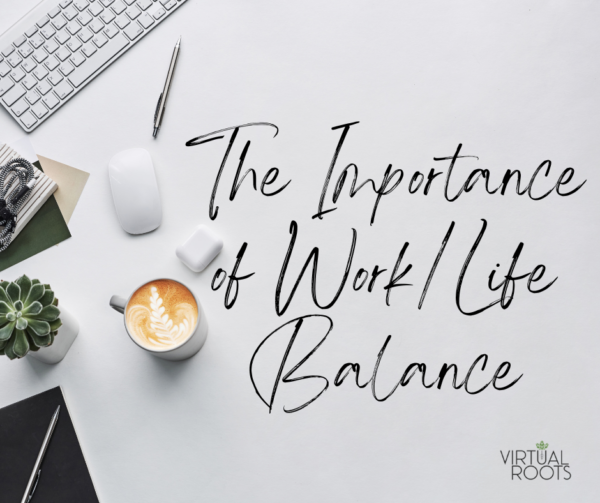The Importance of Work/Life Balance
Maintaining a healthy work/life balance involves dividing your time and energy between work and other important aspects of life, such as family, friends, personal hobbies and self-care. It's a term that has recently gained a lot of attention, especially with the rise of remote employment during the global pandemic. In this blog, we’ll highlight the importance of a healthy work/life balance, including some strategies to help you create one for yourself.
Why is Work/Life Balance Important?
So, why is work/life balance so important? First and foremost, a healthy work/life balance can lead to increased productivity and job satisfaction. When you're able to step away from your workplace and recharge, you'll be able to return with renewed energy and a clearer mind. This can help you to become more efficient and effective in your everyday tasks. It can also have numerous benefits for your overall well-being, since constantly working or stressing about your job can take a toll on both your mental and physical health. Getting regular exercise, engaging in activities you enjoy and spending time with loved ones can all help to reduce stress and improve your overall happiness and well-being. If work is especially stressful, consider adopting a new hobby or two to occupy your time and thoughts outside of the work environment.
Working from Home
When you're working from home, it can be especially difficult to maintain a healthy work/life balance. Without the physical separation of a commute or the structure of a traditional office setting, it can be tempting to work longer hours or to let tasks creep into your personal time. This can lead to feelings of burnout, increased stress and a lack of satisfaction in both your personal and professional life.
One easy way to improve your work/life balance when you're working from home is to set boundaries. This can mean setting specific times for when you'll start and end your workday, or creating a designated work space in your home to help you separate your work and personal life. It can also be helpful to communicate with your colleagues and manager about your availability and any boundaries you need to set to ensure that you have time to take care of yourself. It's also important to make sure you take breaks throughout the day. Taking regular breaks can help to reduce fatigue and improve your focus and productivity. This can be as simple as taking a few minutes to stretch or go for a walk, or scheduling a lunch break to step away from your work. Also make an effort to declutter your work spaces, physical and digital. This will help you stay focused and on-task during the workday while creating less of a distraction in your off hours.
Outside of Work
In addition to these steps, it's important to maintain self-care outside of the workplace. This can mean setting aside time for regular exercise and making sure you're getting enough sleep and eating healthy meals. Prioritizing your physical and mental health can help you to better manage your stress and maintain a healthy work/life balance. Also consider seeking out a therapist or a support group to help you manage your workload and provide a sense of assistance and community.
Do what you can.
Overall, maintaining a healthy work/life balance is essential for both your personal and professional well-being. When you're working from home, it can be especially challenging to find this balance, but by setting boundaries, taking breaks, prioritizing self-care, and seeking support, you can ensure that you're able to find a healthy balance between your work and personal life.
